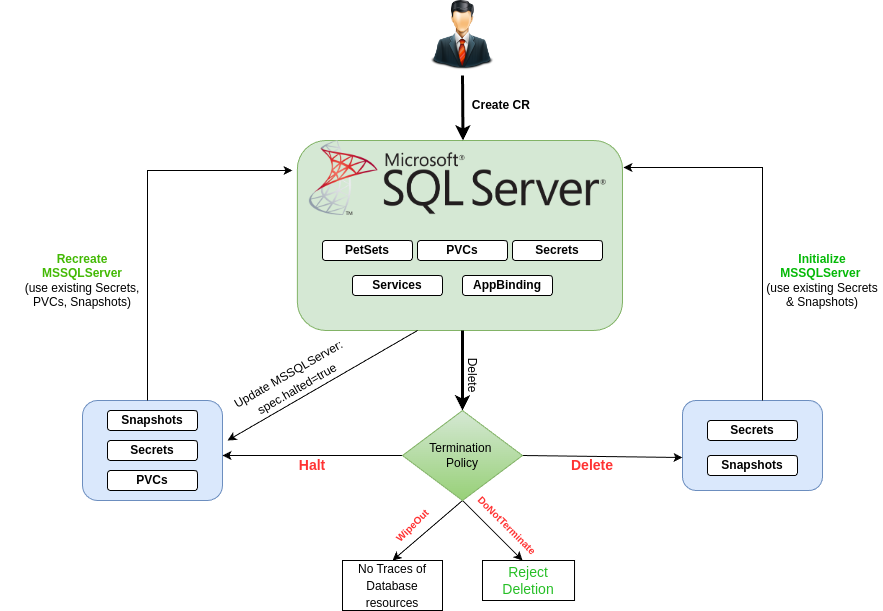You are looking at the documentation of a prior release. To read the documentation of the latest release, please
visit here.
New to KubeDB? Please start here.
Overview
Microsoft SQL Server is one of the most popular relational database management systems (RDBMS) in the world. KubeDB support provisioning for SQL Server Availability Group and Standalone SQL Server instances. Utilize SQL Server’s high availability features by deploying instances in availability group mode. KubeDB leverages the Raft Consensus Algorithm for cluster coordination, enabling automatic leader election and fail over decisions. Quorum support ensures the reliability and fault tolerance of your SQL Server deployments. You can also deploy SQL Server instances in standalone mode for simple, single-node configurations. KubeDB users can now seamlessly provision and manage SQL Server instances directly within their Kubernetes clusters.
Supported Microsoft SQL Server Features
| Features | Availability |
|---|---|
| Standalone and Availability Group Cluster (HA configuration) | ✓ |
| Synchronous Replication | ✓ |
| Automatic Failover | ✓ |
| Custom Configuration | ✓ |
| Authentication & Authorization | ✓ |
| Externally manageable Auth Secret | ✓ |
| Instant and Scheduled Backup (KubeStash) | ✓ |
Continuous Archiving using wal-g | ✓ |
| Initialization from WAL archive | ✓ |
| Initializing from Snapshot (KubeStash) | ✓ |
| Reconfigurable Health Checker | ✓ |
| Persistent volume | ✓ |
| Builtin Prometheus Discovery | ✓ |
| Using Prometheus operator | ✓ |
| Automated Version Update | ✓ |
| Automated Vertical Scaling, Volume Expansion | ✓ |
| Automated Horizontal Scaling | ✓ |
| Autoscaler for Compute and Storage Resources | ✓ |
| Reconfiguration | ✓ |
| TLS | ✓ |
| Grafana Dashboards | ✓ |
| Autoscaling (vertically) | ✓ |
Supported Microsoft SQL Server Versions
KubeDB supports the following Microsoft SQL Server Version.
2022-CU12-ubuntu-22.042022-CU14-ubuntu-22.04
Life Cycle of a Microsoft SQL Server Object

User Guide
- Quickstart Microsoft SQL Server with KubeDB Operator.
- Detail concepts of MSSQLServer object.
- SQL Server Availability Group Clustering supported by KubeDB.
- How to Backup & Restore SQL Server using KubeStash.
- Want to hack on KubeDB? Check our contribution guidelines.



































